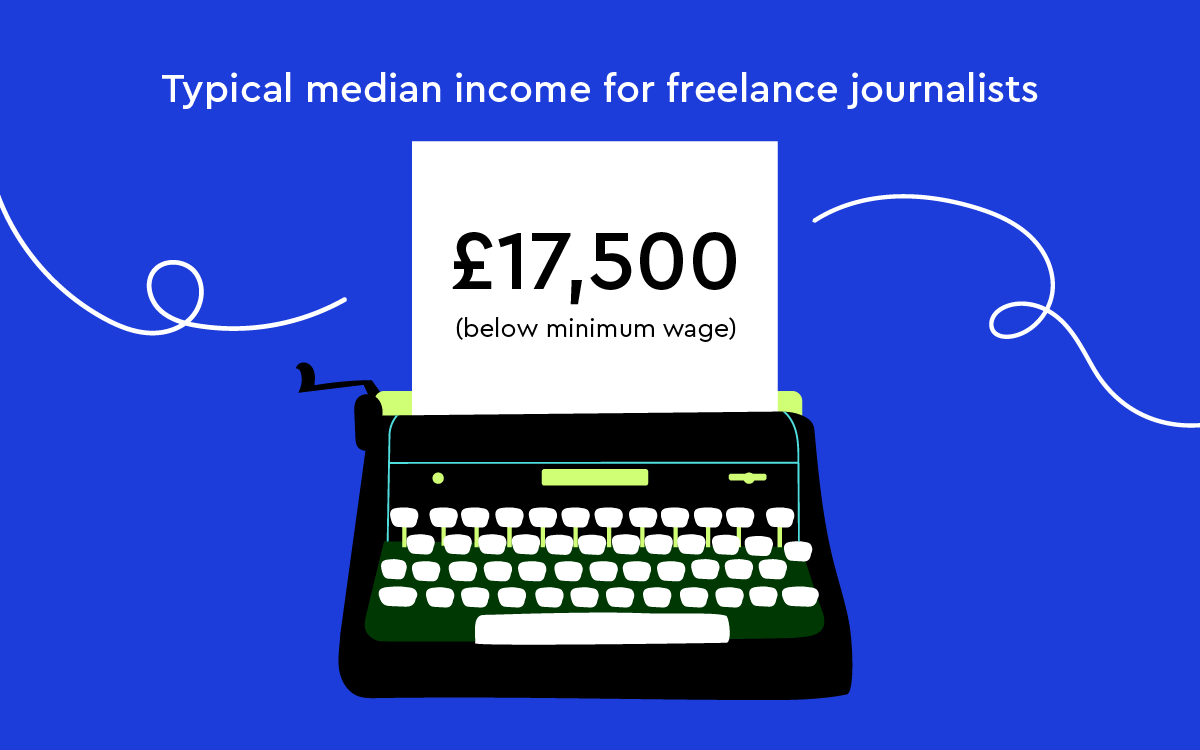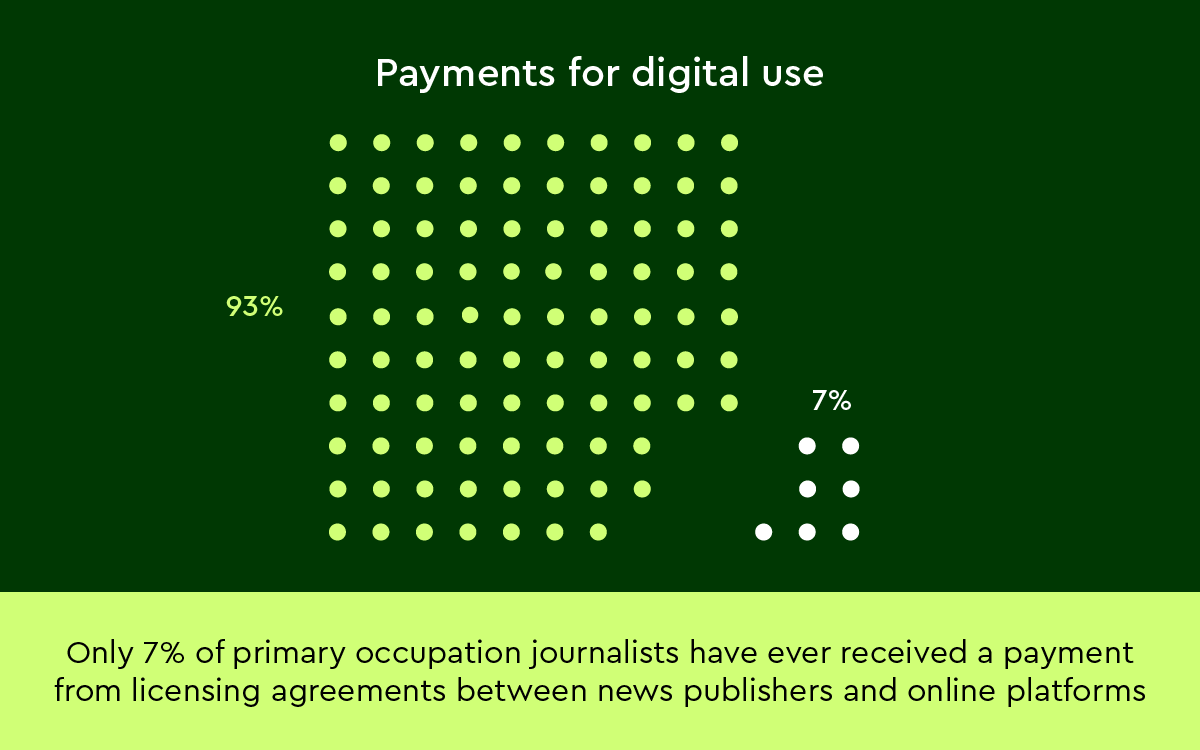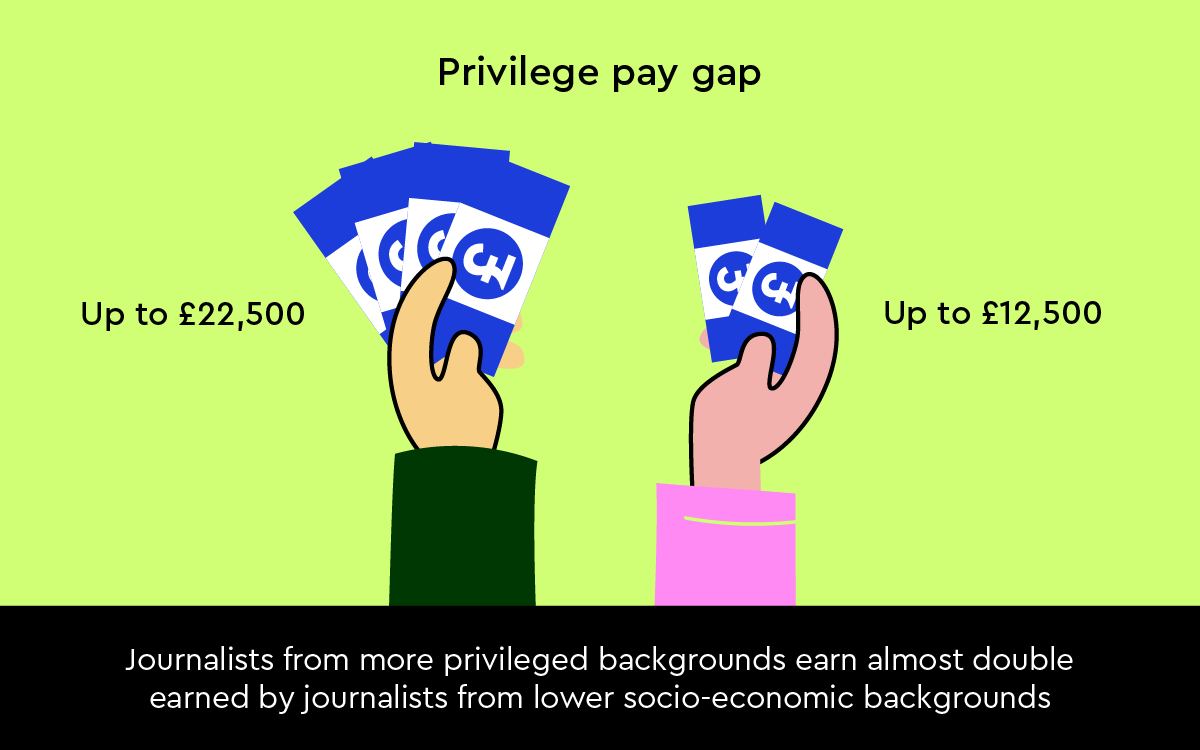Research
Freelance journalists: A survey of earnings, contracts and copyright
In 2024, research conducted by CREATe revealed that freelance journalists earn less than the UK minimum wage, fail to benefit from licensing agreements and are significantly lacking in diversity.
The report surveyed almost 500 freelance journalists in the UK to learn more about pay, contracts, working conditions and copyright issues. It found that median income for primary-occupation freelance journalists sits at just £17,500, a figure below the minimum wage, assuming a typical 35-hour work week.


Whilst there are piecemeal licensing agreements in place between publishers and online platforms in the UK for secondary uses like ‘news scraping’, the survey found the vast majority (93%) of freelance journalists have never received a payment from this source. This is despite the increasing significance of secondary uses for online content.
The research also demonstrated that freelance journalism is an overwhelmingly white, middle class, occupation. Most freelance journalists came from professional family backgrounds (63%), whereas only 19% came from “lower” socio-economic backgrounds. Journalists from lower socio-economic backgrounds were found to earn nearly half that of journalists from more privileged backgrounds.
Freelance journalism was also found to be an “overwhelmingly white profession”. Black freelance journalists were found to earn seven times less than their white counterparts, although we should be cautious due to the very small sample size.
You can read the report in full here.

Estimating the value of freelance journalists’ online rights
In 2024, research conducted by Datasky estimated the potential value of a UK scheme to remunerate freelance journalists for online secondary uses of their work.
Using existing international schemes as a comparator, they calculated that a UK scheme could generate anywhere between £25m and £322m per year for freelance journalists.
With average earnings for freelance journalists currently below minimum wage, a scheme of this kind would provide a desperately needed additional income stream. This would help to sustain careers and help to stem the loss of jobs in the industry, with job losses increasing by 48% in 2023.
You can read the full report here.
Today’s report affirms the NUJ’s calls for the agreements that redress the power imbalance between freelance journalists and platforms, providing crucial insight into the potential hundreds of millions in revenue that could be agreed in negotiations. Whilst the Digital Markets, Competition and Consumers Act presents an opportunity to reform the current landscape, this research makes clear transparency must lie at the heart of agreements allowing data sharing to ensure journalists receive their fair share of revenue.
National Union of Journalists General Secretary
